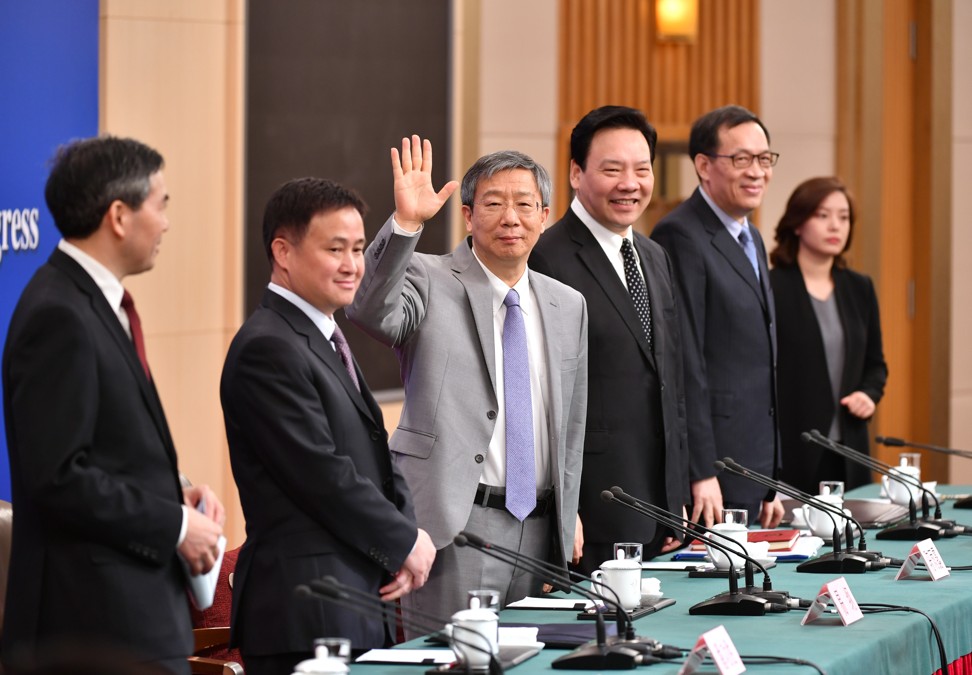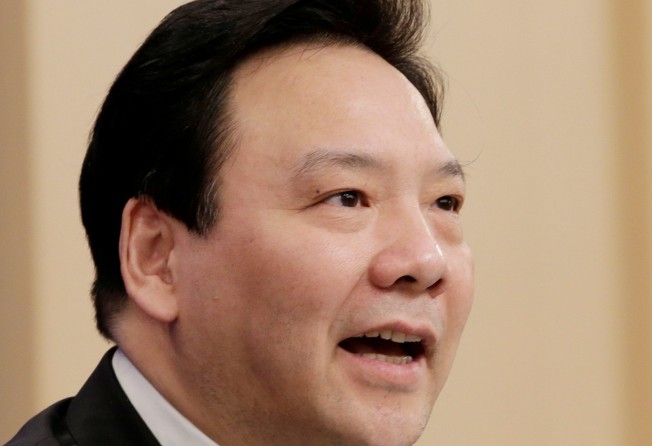
Chinese central bank official takes swipe at US policy, saying protectionism harms ‘mutual trust’
- Chen Yulu urges International Monetary Fund to continue supporting rules-based multilateral trade system
- Tariffs play ‘only a limited role’ in fixing trade imbalances, he says

Protectionism has harmed mutual trust among countries and limited the scope for multilateral cooperation, a vice-governor of the People’s Bank of China said on Saturday, taking a swipe at US President Donald Trump’s “America first” trade policies.
Chen Yulu urged the International Monetary Fund to continue supporting a rules-based multilateral trade system as tariffs played “only a limited role” in fixing bilateral trade imbalances.
“The protectionism of some countries has harmed mutual trust among countries, limited the scope for multilateral cooperation and impeded the willingness to achieve it,” the central bank official said in a statement during the IMF and World Bank spring meetings in Washington.
“Unilateralism and protectionism can only exacerbate domestic imbalances and impair necessary structural adjustments, which can negatively affect the countries concerned as well as global growth,” he said.

China would also continue to implement “prudent monetary policy and proactive fiscal policy” to ensure its economic growth remains stable, he said.
Chen’s comments came as Beijing and Washington seek a deal to end a bitter trade war marked by tit-for-tat tariffs that have cost the world’s two largest economies billions of dollars, disrupted supply chains and rattled financial markets.
Rising hopes of an agreement recently have lifted global stock prices, though the IMF has warned that failure to reach an agreement could trigger a big market backlash.
“Uncertainties from trade frictions, the negative impact of tariff increases on trade and the disruptions of global supply chains have gradually emerged,” Chen said.
“Trade friction can also dampen market confidence, which in turn amplifies financial market volatility and has an impact on economic growth,” he said.